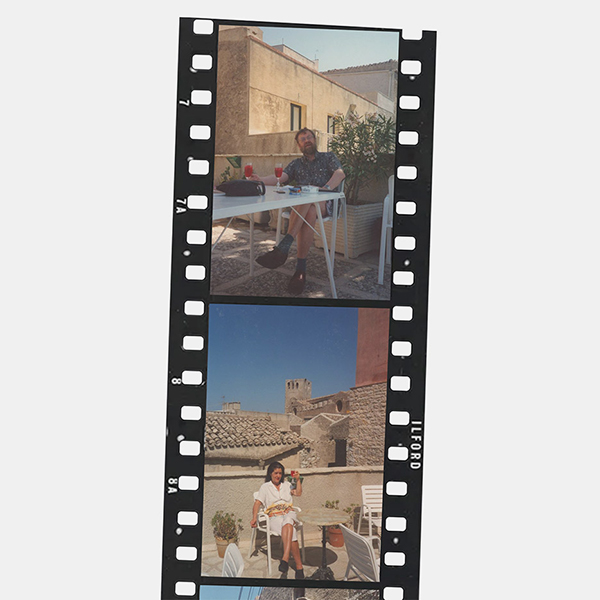Henning Christiansen - Mediterranean Music-Water
A strikingly unique and visionary composer, Christiansen was the most notable member of Fluxus’ Danish arm. A bridge between the world of fine art and the realms of avant-garde sound, over the course of his career he continuously dismantled the boundaries and definitions applied to the arts. The purity of his work and ideas is striking, refocussing the very notion of what experimental and avant-garde practice can be. He was a radical collectivist as much as an assertive individualist - contradictory and reactionary - theatrical and inward facing - possessed by a singular vision which drove him down uncharted paths that rewrites the place music occupies in our lives. While there were a fair number of albums to appear during his lifetime, the majority of these were issued by small artist imprints and remain particularly hard to find. It was only after his death in 2008 that the momentum began to slowly build, with labels like Slowscan, Penultimate Press, Institute for Danish Sound Archaeology, Holidays, and The Henning Christiansen Archive bringing forth a wealth of material that indicated how prolific in the field of sound he had been. The latest to join this pool is Holiday’s “Mediterranean Music-Water”, a never before issued tape composition recorded at Teatro Gebel Hamed in Sicily during December of 1991.
“Mediterranean Music-Water” belongs to a body of work Christiansen embarked upon during the 1980s and '90s connected to Sicily, the other most notable and available being “L'Essere Umano Errabando, La Voce Errabando”, issued by The Henning Christiansen Archive in 2020. These works were extension of Ursula and Henning Christiansen’s meeting and befriending the Sicily based couple Carlo Quartucci and Carla Tatò, with whom they regularly visited and collaborated.

Like its predecessor, “Mediterranean Music-Water” is a conceptualization of abstract theatricality at the connection of place and its relationship to the sea. Performed by Ursula Reuter Christiansen and Henning Christiansen and recorded at a small performing arts theatre in Erice, Sicily, the abstract for this never before released work reads: “In the morning (after the storm), on the beach. The sea has thrown some things on the beach. Blue light - some mist? On the ground. Ursula's slides on the wall. Henning is rolling from the background of the stage slowly, very slowly, towards, in a fish net. I come in looking for the things the sea has left and discover him. I roll him out of the net, he's nearly dead, and try to get life in him. Light in the background in rainbow colours. Ursula wears a partlett dress, as a siren.”

These images lay a foundation and context for the sounds that emerge over the album’s two sides, a fascinating conjunction between the power of water and the human spirit. Through the processing of heavy delay and reverb, each sending sounds ricocheting in the vastness of space, we encounter the howling utterances of violin tones, vocalizations, and countless unplayable instrumental and non- instrumental sound sources, gathering in a vast and sprawling serious of sonorous expanses that seem to echo the power, movements, and myths tied to the Mediterranean.

Truly stunning and an unquestionable standout in the recording career of Henning Christiansen, it’s hard to understand how it’s taken “Mediterranean Music-Water” more than thirty years to see the light of day. Thankfully, Holidays has remedied its absence from our ears.

Issued in a very limited edition of 350 copies with a 16-page book, comprising drawings, handwritten letters, photos, and texts by Ursula and Henning Christiansen, this one can’t be missed.


